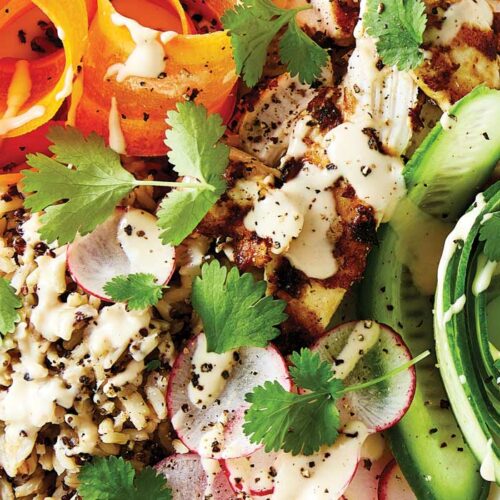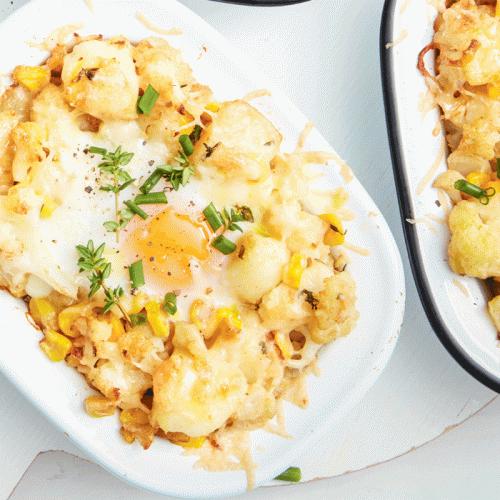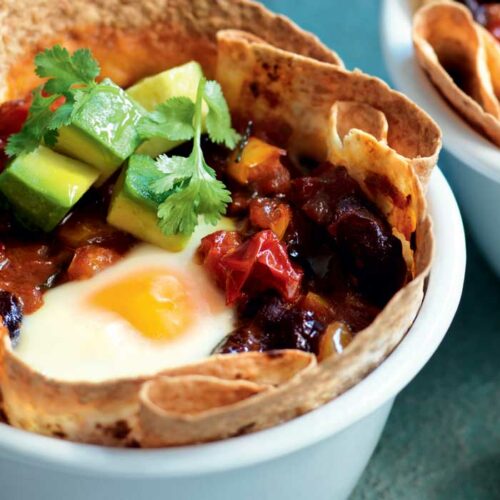
More a food philosophy than a diet, the 80:20 approach is about eating healthily most of the time, while still allowing leeway for your favourite treats. HFG takes a closer look.
Whether you’re trying to lose weight or simply want to eat healthier, one thing’s for sure — strict, fad diets don’t tend to work. There are a range of reasons to help explain this, everything from how dieting affects metabolism and hunger hormones, to research showing restrictive dieting impacts quality of life and bumps up food cravings, at least in the short term. No surprise, then, that while most people lose weight when they go on a diet, the vast majority regain it and sometimes more.
The problem with moderation
At the other end of the scale, the ‘everything in moderation’ advice might seem like the perfect antidote. Sadly, that approach doesn’t have a great track record, either. American research pinpoints the problem: ‘moderation’ is a relative term that means different things to different people and doesn’t provide clear guidance.
Enter the 80:20 rule
“It’s a new twist on the moderation mantra, which is a little dated,” says dietitian Joel Feren. “The idea is to eat healthily 80 per cent of the time, then allow for indulgences and treats 20 per cent of the time.”
Dr Elena George, dietitian and lecturer in nutrition and dietetics at Deakin University, lives by this eating approach, herself. “I think one of the benefits of 80:20 is that nothing is off limits,” she says. “It’s about having everything in a balanced way and, therefore, theoretically it should be more sustainable in the long term.
“The problem with fad diets is they’re extreme and can only be maintained for a short period of time. With the 80:20 approach, there’s the flexibility to embed it into your lifestyle, because you can avoid the feeling that you’re being deprived of anything.”
The proof is in the… pudding
The results of a study designed to compare the effectiveness of the 80:20 diet to a more restrictive one suggest exactly that. Over the course of the study period, far fewer people who were following the 80:20 diet dropped out, compared to people trying to stick to healthy eating 24/7.
“This approach isn’t sexy — there’s no promise that you’ll lose five kilos before next month,” says Dr George. “But weight loss may come in time with sustained, healthy changes, and by remembering that slow and steady wins the race.”
So how exactly does the 80:20 approach to eating work? Are there any pitfalls? And what do you need to know before you get started? Read on to discover three key factors to bear in mind.
1. Understand what 80:20 looks like
In the strictest sense, if you eat three meals a day, or 21 meals a week, 80 per cent of them — roughly 17 meals — should be healthy and the other four can consist of those ‘sometimes’ foods. But Feren says it doesn’t have to be so prescriptive. “The percentages are pretty arbitrary,” he says. “My interpretation is that you can have your favourite treats once or twice a week, while aiming to include primarily healthy foods the rest of the time. I don’t necessarily think you need to take the percentages so literally. With 80:20, there are no strict rules or restrictions — it simply encourages a healthy mindset when it comes to eating.”
Dr George has similar advice. “Generally speaking, I think all meals should have a healthy component, and sometimes the ’20 per cent’ will be the dessert you ate after dinner or the gelato you had on Sunday afternoon walking on the beach,” she says.
2. Make sure ‘healthy’ equals ‘tasty’
Dr George says that even though most people understand which foods are healthier than others, you shouldn’t feel obligated to eat something just because it’s ‘good for you’. “If you don’t like eating something, don’t eat it,” she says.
So, while the Mediterranean diet — rich in whole foods, fruits and vegetables, whole grains, nuts, seeds, legumes and fish — is well recognised as a healthy way of eating, if you don’t like lentils, sardines or kale, don’t eat them.
“Take the time to make all your mealtimes something you can look forward to, and if you aren’t sure where to start, get some support by speaking to a dietitian. We don’t just dish out generic meal plans. Our job is to give you lots of options that suit your preferences, culture and lifestyle.
“I also think healthy choices need to be easy choices, so I like to talk to people about ways to pull together simple, delicious meals without too much effort. Freezing or preparing healthy meals in advance wherever possible is also great — we all need convenient options,” adds Dr George.
3. Avoid thinking of those ‘20 per cent’ meals as ‘cheat’ meals
“We need to move away from the idea that foods are ‘good’ and ‘bad’ because guilt around eating only makes meals stressful,” explains Dr George.
“Plus, it’s psychological in that we want what we think we can’t have. I like to remind people that they can eat whatever they want, it’s just that some of those wants may be on the ‘sometimes’ list. There’s not a ‘never’ list.”
Feren agrees. “It about mindset. We need to shift our focus away from ‘bad foods’ and ‘cheat meals’ and see food simply as food. After all, food is morally neutral, and abandoning the rules and terms that are rife in diet culture can help foster a healthier relationship with it,” he concludes.
5 strategies to prevent bingeing
Worried you’ll overindulge when you eat a 20 per cent food or meal? The following five strategies can help.
1. Drink water first
You’ll naturally feel like eating a little less when you drink a couple of glasses of water before starting your meal.
2. Choose a smaller portion
Not only do portion-controlled snacks keep a lid on energy intake when compared to snacking from a larger packet, smaller meals have the same impact — all without feeling you’re ‘going hungry’.
3. Take your time
Eating slowly and chewing more not only helps you get the most enjoyment out of your 20 per cent foods, it’s an easy way to consume fewer kilojoules/calories.
4. Wait before having a second helping
Allow at least 10 minutes to pass to give your stomach time to tell your brain it’s full.
5. Cut treats in half
Research shows you’ll feel just as satisfied 15 minutes after you’ve eaten half a snack, as if you’d eaten the whole thing.
For health weight advice you might be interested in:
Article sources and references
- American Psychological Association. 2018. Why do dieters regain weight? Accessed November 2021https://www.apa.org/science/about/psa/2018/05/calorie-deprivation
- Cornell University. 2013. Study: just a bite satisfies cravings for snacks. Accessed November 2021https://news.cornell.edu/stories/2013/01/study-just-bite-satisfies-cravings-snacks#:~:text=A%20new%20Cornell%20study%20finds,of%20the%20same%20food%20would.&text=For%20both%20groups%2C%20cravings%20significantly,and%20they%20were%20equally%20satisfied.
- Harvard School of Public Health. 2018. Diet review: Mediterranean diet. Accessed November 2021https://www.hsph.harvard.edu/nutritionsource/healthy-weight/diet-reviews/mediterranean-diet/
- Hernandez M. 2017. 80/20 diet efficacy in regard to physiology and psychosocial factors. J Obes Weight Loss Ther. 7: 6.https://www.omicsonline.org/open-access/8020-diet-efficacy-in-regard-to-physiology-and-psychosocial-factors-2165-7904-1000357-97315.html
- nstitute for Health Transformation, Deakin University. 2019. Study shows binges, restrictive dieting have big impact on quality of life. https://iht.deakin.edu.au/2019/11/study-shows-binges-restrictive-dieting-have-big-impact-on-quality-of-life/
- Meule A. 2020. The psychology of food cravings: The role or food deprivation. Current Nutrition Reports. 9: 251–57. https://pubmed.ncbi.nlm.nih.gov/32578025/
- News Medical. 2008. Smaller mouthfuls and eating slowly reduces calorie intake. Accessed November 2021https://pubmed.ncbi.nlm.nih.gov/18589027/
- Rutgers. 2012. Take control of portion sizes. Accessed November 2021https://njaes.rutgers.edu/sshw/message/message.php?p=Health&m=219
- Stroebele et al. 2009. Do calorie-controlled portion sizes of snacks reduce energy intake? Appetite. 2(3): 793–96. https://pubmed.ncbi.nlm.nih.gov/19501784/
- The University of Sydney. 2019. Dr Nick Fuller: 5 reasons diets don’t work, and what to do instead. Accessed November 2021https://www.sydney.edu.au/medicine-health/news-and-events/2019/05/06/dr-nick-fuller-5-reasons-diets-don-t-work-and-what-to-do-instead.html
- niversity of Cambridge. 2015. Larger-sized portions, packages and tableware lead to higher consumption of food and drinkhttps://www.cam.ac.uk/research/news/larger-sized-portions-packages-and-tableware-lead-to-higher-consumption-of-food-and-drink#:~:text=The%20data%20showed%20that%20people,could%20reduce%20average%20daily%20energy
- University of Georgia. 2016. Just a few more bites: defining moderate eating varies by individual, study finds.https://news.uga.edu/moderate-eating-varies-by-individual-0616/
- Virginia Tech. 2010. Clinical trial confirms effectiveness of simple appetite control method. https://vtx.vt.edu/articles/2010/08/082310-cals-davy.html
www.healthyfood.com










